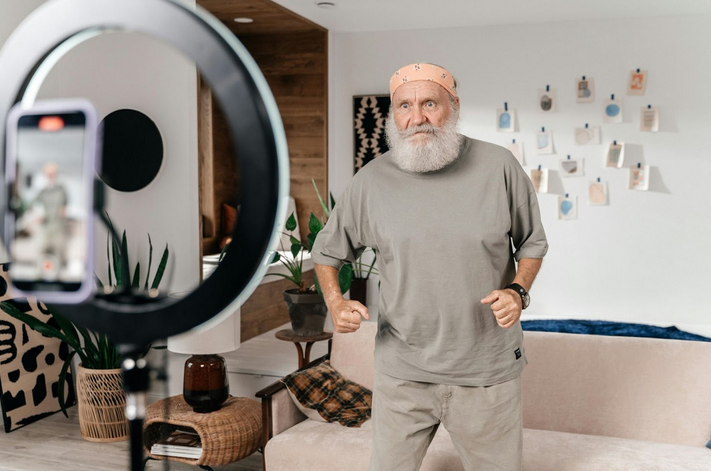The rise of mobile streaming in the UK: A shift in how the nation consumes entertainment
October 15, 2025

In recent years, the UK has witnessed a dramatic transformation in the way its population consumes media. Driven by technological advancements and changing lifestyle habits, mobile streaming has emerged as a dominant force in the entertainment landscape. With over two-thirds of UK households now subscribing to at least one video streaming service, the trend shows no sign of slowing. At the forefront is Netflix, continuing to lead in both subscriptions and viewership, followed closely by other major players like Prime Video and Disney+. But beyond household subscriptions, it’s the role of smartphones and mobile devices that is truly reshaping the entertainment experience.
Smartphones have become the go-to devices for accessing entertainment, offering instant access to films, TV shows, music, podcasts, and more. This shift has been fuelled by the increasing demand for on-demand content, an expectation now deeply embedded in UK consumer culture. Whether it’s binge-watching a new series on the train, listening to a podcast while commuting, or streaming music during a workout, mobile streaming is ingrained in everyday routines.
Mobile Devices and the Demand for Instant Entertainment
The dominance of mobile phones in the streaming space reflects a broader shift towards convenience and immediacy. Consumers no longer want to wait for scheduled broadcasts; instead, they expect content to be available whenever they want it. This “instant gratification” mindset is particularly prominent among younger generations, who have grown up in a digital-first environment. However, it’s not just the young driving this change. Recent findings show that older demographics, especially those aged 55 and over, are increasingly turning to music streaming platforms and podcasts, marking a significant change in habits traditionally rooted in radio and CDs.
This desire for convenience and personalisation extends beyond mainstream platforms. Consumers looking for niche content or unique experiences are also exploring alternative entertainment avenues, such as indie films, international content, and even platforms related to online gaming and betting. For example, non gamstop casino surface are often in discussions around entertainment choices that lie outside traditional UK regulatory frameworks. These platforms, much like streaming services, benefit from the mobile-first trend, offering users easy access and uninterrupted services across devices.
Streaming Services: A New Entertainment Standard
While the initial surge in streaming service subscriptions has plateaued, usage remains exceptionally high. Subscription Video on Demand (SVoD) services are now firmly embedded in UK households, providing an alternative to traditional television. In fact, some studies suggest that platforms like Netflix have overtaken BBC1 in viewership, underscoring a clear and likely irreversible shift in media consumption. These platforms offer tailored recommendations, vast content libraries, and the flexibility to watch on multiple devices, making them particularly appealing in today’s fast-paced, digitally connected world.
This change has left traditional broadcasters with the challenge of adapting or risking irrelevance. While many have launched their own on-demand services, they continue to lag behind global streaming giants in terms of user experience and content selection. The shift is more than just technological; it’s cultural. People are rethinking what it means to watch TV or listen to music, opting instead for content that fits around their lives rather than dictating it.
Beyond Video: The Growth of Music Streaming and Podcasts
While video remains the king of content, music streaming and podcast consumption are steadily gaining ground, especially on mobile. Interestingly, the most notable growth in these areas is occurring among older age groups. Where once physical media and live radio were staples, platforms like Spotify and Apple Music are now gaining favour with those aged 55 and above. Podcasts, in particular, are enjoying a renaissance, offering everything from true crime series to health advice and political commentary.
For modern audiences, streaming remains the norm, with a growing preference for platforms that offer cross-media experiences. These users may watch a show, listen to a podcast related to it, and explore curated music playlists, all within the same app. This interconnected approach to content consumption is only possible thanks to the ubiquity and power of mobile technology.
Live Streaming: The Next Evolution?
Although on-demand remains dominant, live content is carving out a growing niche, especially in sports and real-time events. Younger viewers, in particular, are showing renewed interest in watching live events as they happen, often accompanied by social media interaction. This suggests that while convenience is key, there is still a demand for shared, real-time experiences, especially when enhanced by digital platforms.
However, live streaming presents unique challenges. Licensing issues, latency problems, and high bandwidth requirements mean that the infrastructure still has room for improvement. But with consumer interest rising, it’s likely that investment in this space will follow.
Conclusion
Mobile streaming in the UK has rapidly evolved from a convenience to a cultural norm. From blockbuster movies to niche podcasts, smartphones are now the primary gateway to entertainment. This trend reflects deeper societal changes, a shift towards immediacy, personalisation, and choice. As technology continues to advance and consumer expectations rise, the entertainment industry must keep pace or risk being left behind.
With streaming habits becoming ever more entrenched and the lines between different forms of content increasingly blurred, one thing is clear: the era of mobile, on-demand entertainment is not just a passing trend, it’s the new standard.
Other posts by :
- FCC seeks fair play over foreign satellite access
- Bank raises RocketLab target price
- Ukraine wants its own LEO system
- SpaceX outlines Starlink cellular delivery plan
- NAB vs CTIA on C-band release
- Laser terminals to operate at 100x faster
- Starlink success in Spain, but South Africa proves difficult
- RocketLab doubts over Mynaric bid
